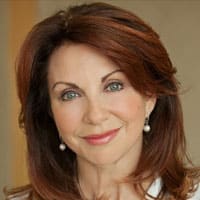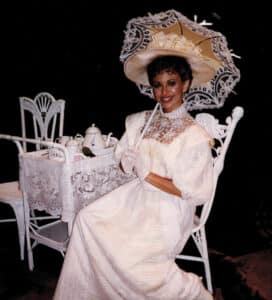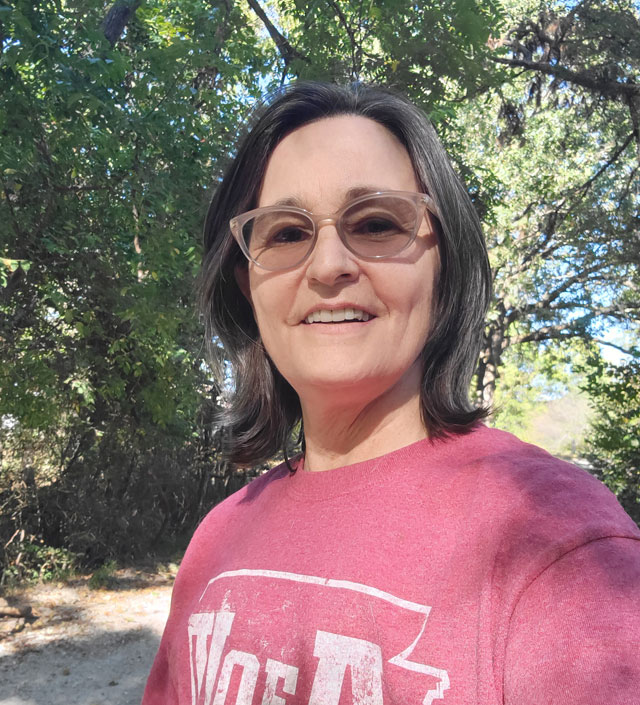What would you do if you couldn’t dance anymore?
This question may sound vaguely or very familiar. Or maybe you have two left feet and think it’s irrelevant. But regardless of your immediate reaction, it’s impossible to do comprehensive financial planning without asking clients some version of this.
“It’s a really important question because whatever industry you’re in, there are no guarantees, there’s no certainty,” says Jill Williams, who runs Mindful Wealth Management, a Montclair, N.J.-based private wealth advisory practice of Ameriprise Financial Services, LLC. People must also figure out how they’re going to spend their retirement years, she adds.
Meanwhile, the question — a line the director asks the dancers in Broadway’s “A Chorus Line” — holds particular meaning for Williams: Asking herself this prompted her to take the leap 20 years ago to the financial services industry following 15 years as a working actor.

Williams, who did a lot of regional theater and Broadway tours, arrived in New York with a performing-arts degree. “Moving to New York was always a goal, and you always went where the work is … but every show closes,” she says. “I was always dealing with that feast or famine psychology that’s so common among creatives.”
Although she loved her career (her theater credits include “Forbidden Broadway,” “A Chorus Line,” “Oklahoma,” “Romance/Romance,” “The Secret Garden” and “Andrew Lloyd Webber – Music of the Night”), “financial security and stability was always my big driver,” she says. “It was always uneasy for me and then, like a lot of women, I found myself a single mother living in New York – and I was never willing to starve for my art.”
Transferrable skills
Williams didn’t anticipate a career in financial services. “Growing up in Oklahoma, there were some taboo topics that were never discussed, and one of them was money. And so, I always had a lot of anxiety around it,” she says. “It was always a mystery.”
While contemplating her second act, she asked a friend, an executive at a financial services company, “the proverbial question from ‘A Chorus Line’ … and I asked her if there was anything in her world that I might be able to possibly do,” says Williams. “She said, ‘Listen, I think you’d be great in financial services.’ So that’s how it really began.”
While there may seem to be a big disconnect between Broadway and her current role, “there were so many transferable skills that it really prepared me for what I do now: discipline, listening, navigating rejection, and navigating unexpected financial insecurity in the face of fear and constant disappointment,” she says.
Building a new skill set and fan base

Williams joined the financial services industry knowing she needed to quickly figure out how to replace her six-figure income. So, she earned her CFP designation, found mentors and immediately partnered with a female advisor who had 16 years of experience. “I was studying and learning and doing everything I could to reinvent,” says Williams – her suggestion for anyone seeking a new career.
She initially started building a client base with her natural market, members of the theater world, but realized they wouldn’t be able to fully support her career.
“People were really living show to show and paycheck to paycheck,” she says. Broadway producers had more money, but they too faced challenges — and risky investments in shows that could flop. So, she pivoted and started reaching out to human resources directors of large companies headquartered in N.J., where she was living.
“This was the beginning of inclusion and diversity initiatives in Fortune 500 companies,” she says, and HR directors were focusing on this through affinity groups that were sprouting up. There were black employee networks, women empowerment networks and LGBT networks, she says, noting this was before acronym included the letters Q, I and A.
“I could be very comfortable speaking in front of large groups of people, but I didn’t know enough yet,” she says. So, she would introduce her seasoned partner, “the subject-matter expert,” and then follow up with participants.
“We would have 100 to 150 people at a lunch-and-learn inside these companies. That’s how I built my practice,” says Williams. “It also gave me a real love for teaching and guiding and giving advice to folks who were seeking information.”
Preparing for the unexpected
Williams estimates that about 20% of her current clients are in the creative field, including film, television, theater and publishing. For them (as with many gig economy workers), the No. 1 issue is cash flow because they often lack a steady, predictable, dependable, sustainable source of income, she says.

“When you are a performer, you need to have at least 12 months of what it costs you to live your life … in a cushion and cash equivalents,” she says.
But they’re not the only ones who should prepare for the unexpected and take inventory of their assets and spending, she says. Ameriprise advisors have cited overspending, without factoring in the possibility of losing one’s income, as the No. 1 mistake with unexpected retirement (38%). Other missteps include not having an emergency fund to cover costs (24%) and not having an alternative stream of income (14%).
“Many people keep their head in the sand regarding, What’s my burn rate? What does it cost me to live my life? What percentage of those expenses are fixed and what percentage are discretionary? Where do I have wiggle room? Where don’t I? Where am I willing to compromise, and what are the tradeoffs?” says Williams.
“Living within your means is such a simple concept, but it’s not easy. And if you don’t know what the requirements are to live the quality of life that you want, then, you know, you’re just winging it, and you’re living on the hairy edge,” says Williams.
She has some clients earning $1 million and spending $1.2 million, and others earning $120,000 and spending $80,000. “So, it’s not about how much you earn,” she says.
Struggling to keep up
Workers with seasonal or unsteady work and multiple employers may also be behind on retirement savings and in need of an advisor’s help. “There’s an opportunity for everyone to save in some tax-advantaged plan; it’s just knowing which plan is appropriate,” — which may depend on whether they receive W-2 or 1099 income, says Williams.
For some people, setting up a SEP IRA or SIMPLE 401(k) plan may make sense, she says. Members of the Actors’ Equity Association may qualify for pension, health and 401(k) benefits through the Equity-League Benefit Funds.
The pandemic has also left many performers far behind in their retirement and other financial planning goals.
“It was devastating for the community financially, because live entertainment just shut down all over the country,” says Williams. “There was really no safety net: So many people in that industry have been resourceful and developed alternate streams of income for themselves in the service industries, but those industries suffered in the pandemic, as well. So, people depleted their savings.”
One client who spent down her retirement savings during the pandemic decided that, because she loved yoga, to get certified to teach it, says Williams. Through this, the client developed an interest in life coaching and launched a life-coaching business. It took a few years to get certified as a life coach and get her marketing plan in place, but she reinvented herself, says Williams.
To do so, “You have to have patience, you have to have discipline, you have to have faith in your ability to reinvent and to bring value in a new way,” she says. That’s where financial advisors can add much value.
“A lot of my role is the psychology of planning,” says Williams. “And because I have empathy for creatives, and I’ve been there, I have great compassion and hope for them.” She helps them understand their options, the tradeoffs “and how they can begin again.,” she says. Often, “they have to make sacrifices and leave what they love temporarily, sometimes even permanently.”
When age isn’t just a number
Williams is very candid about the prevalence of ageism in the workplace. “One of the realities in our society, in our culture of entertainment, is that youth is very much currency and a commodity,” she says, particularly for those “in front of the camera or on stage.”
For all clients, “Having that realistic conversation [raised in ‘A Chorus Line’] earlier than later is really important: What would I do? What do I love? What are my interests? Where could I bring value? And you have to be flexible.”
Not only can it be more difficult to get work at an advance age, she says, “a lot of people don’t have the energy to work until they’re 75, until they’re 80.”
Advisors can add real value by not just helping clients figure out the numbers they need to save, she says, but also by helping them figure out what they’re retiring to and where they want to live.
Nashville and Las Vegas have become popular destinations for people in the acting world looking for an alternative to pricy New York and Los Angeles, she says. People splitting time between multiple locations must be able to prove they’re spending at least 183 days a year in their primary residence – so she tells them to get a CPA who knows the rules “and document, document, document.”
Retirement: re-invention and risks
Even clients who are retiring have to re-invent and be nimble, flexible and creative, says Williams, because they could spend one-third of their life in retirement. Advisors must help them figure out how to fund those years and address inflation and taxes.
In addition, “risks change as we get older,” she says. In addition to market risk, there’s longevity risk, sequence-of-returns risk and all the insurance-related risks, she notes. “What if you die too soon? What if you live too long? What if you get sick or injured and can’t work? Clients need to have a solid plan in place, and again, it’s not overnight.”
As for Williams, she admits that she initially missed her professional acting days. “But it wasn’t my true calling. This is my true calling,” she says. “And I never would’ve known had I not been handed one more Broadway tour that was closing and [putting my] back against the wall.”
Jerilyn Klein is editorial director of Rethinking65.







